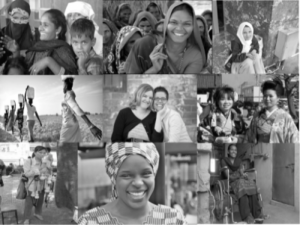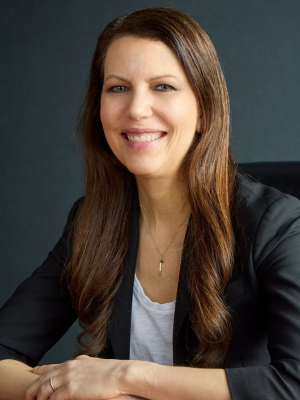 “The equity capital markets are unique in that they’re looking towards the future. The companies we’re raising capital for are disrupting the world, and giving us a glimpse of what’s next. I really enjoy that aspect of going into work every day,” says Jill Ford, Co-head of Equity Capital Markets at Wells Fargo. “No company’s the same, no day is the same, no transaction’s the same. In addition, you get to be around incredibly smart, strategic, visionary thinkers who are potentially going to change the world.”
“The equity capital markets are unique in that they’re looking towards the future. The companies we’re raising capital for are disrupting the world, and giving us a glimpse of what’s next. I really enjoy that aspect of going into work every day,” says Jill Ford, Co-head of Equity Capital Markets at Wells Fargo. “No company’s the same, no day is the same, no transaction’s the same. In addition, you get to be around incredibly smart, strategic, visionary thinkers who are potentially going to change the world.”
Embracing Change No Matter How Established You Are in Your Career
With more than three decades of experience in investment banking, Ford is motivated by the ever-evolving landscape of the equity capital markets and the broad array of challenges and opportunities it presents. However, it took trying a few different jobs in the beginning of Ford’s career to discover that a role in equity capital markets was the right fit for her. She reflects that the twists and turns of this early stage were important in understanding, “what I enjoyed doing and what I didn’t enjoy doing, but also to see what I was actually good at and what I wasn’t particularly good at. Both of those things are hard to get a handle on until you’re in the workforce doing the job.”
Ford recently embarked on a new challenge in her career, leaving the firm where she started her career and where she had worked for two decades, to join Wells Fargo as co-head of Equity Capital Markets. Her decision highlights the importance of embracing change, no matter how established you are in your career. She acknowledges that there was a steep learning curve in getting acclimated to a new firm and job, not only in the sense of building a network of connections across another organization, but also in proving herself and establishing her value. Now that she has settled in, she is pleased to find that her instincts landed her in the right place.
“I’m thrilled to be a part of Wells Fargo…I’m starting to feel ingrained in the culture, particularly how team oriented it is. Everyone is eager to help me navigate the company and connect me to others. There is a wonderful momentum and energy throughout the organization.”
Success and Development as a Leader
As a leader in equity capital markets, Ford knows what it takes to rise through the ranks. Reflecting on what has contributed to her success, Ford points to having the discipline to put in the work and build relationships with clients over time by actively listening to their concerns and what’s important to them.
“Being willing to go the extra mile for a client, being willing to go the extra mile for a team, creates a certain amount of goodwill.” She adds, “I have a strong muscle for taking in what is important to different stakeholders, synthesizing how to best serve them, and giving them options that optimize that priority stack.”
Ford believes that being a good leader is about going outside your comfort zone. She shares the example of offering constructive criticism as a tool for helping others grow.
“Being willing to give constructive criticism to people, even if it feels uncomfortable, is a skill that I’ve had to acquire. Not just giving feedback once a year during reviews but giving it constantly. People will be able to move their careers forward much more quickly if they’re given not just the pats on the back, but true constructive criticism.”
She continues, “I mentor people that way as well, which is not just to say, ‘okay, let’s have a coffee and I’ll tell you how great you are,’ but ‘let’s have a coffee and discuss where you think you might fall short. Then I’ll tell you what I think or help connect you with people I know will give you a straight answer.’ There are ways to coach that feel good for everybody and there are ways to coach that might feel a bit outside your comfort zone, and you have to do both.”
Reflecting on the constructive feedback she received over the years, Ford benefited from it but also wishes she had received more, noting it was hard to come by earlier in her career when there were fewer women leaders around her.
“I feel like a lot of men shied away from having those difficult conversations with women or anyone who didn’t look like them. In the end, that stymies your goals and your opportunities to advance.”
As more women have risen to leadership positions over the years, Ford has seen a productive shift.
“The playing field now is a little bit more level – because men see us as equals, they’re more willing to have those tough conversations with us, which is refreshing.”
Learning from Other Women Leaders and Being the Model for the Next Generation
Given the history of underrepresentation of women in senior leadership positions in the financial industry, it’s no surprise that another significant element Ford attributes to her career development is having the guidance of other women leaders as role models.
“There must be mentorship and guidance, whether it’s formal or informal, or you’re not going to see the end game for your career. As a leader, I have to be that person for others. Seeing a woman or diverse colleague reach the upper rungs and manage groups is not only inspiring, it sends the message to others that you can make this happen too.”
Ford shares that her greatest inspiration came from a senior woman leader who not only exemplified effective leadership but also spoke about the importance of her family.
Ford continues: “She had an incredible ability to get what she needed to be successful at her job, both up and down the chain. She also was the one who debunked the notion that ‘you can only have one kid in finance’ because she had three. She told me how she made it work and gave me a lot of practical advice for having multiple kids. Then she went on to become the CFO of a multibillion-dollar company.”
Aware she will be that inspiration for others, Ford is pragmatic in her approach to balancing her career and motherhood, acknowledging the sacrifices involved in having a demanding career while giving her children the quality time they need.
“I don’t sugarcoat how hard it is, but I always let people know it gets easier. The more senior you get, the more you can delegate…Your job and being a mother are both full-time jobs and it’s impossible to have two full-time jobs, but you can outsource what you need to outsource. You can ask people to help you and you can put your foot on the accelerator and on the brake at different stages in your life and at different points in your kid’s life to make it all work.”
The advice she offers is: “Be a sponge, figure out how everyone’s unique situation is working for them and then take the best parts that might apply to your situation. Make sure you have support, whether it’s a spouse or parents or hiring babysitters, so that you can figure out how to get the job done with more than just you.”
Finding Joy Personally and Professionally
Now that her children are older, Ford feels the pull of the balancing act less. She has more time to dedicate to her passions, both professionally and personally.
From a personal standpoint, Ford finds joy in downhill skiing and calls it one of her “secret weapons” for staying close to her children as it brings the family together outside in nature. She is an avid foodie and delights in a good taco truck as much as a Michelin starred restaurant, both of which are easy to find near her homebase of New York City. In her spare time, you might find Ford pouring over an interior design magazine, exploring her interest in innovative design concepts.
Professionally, Ford is excited for the what the future holds in leading the Equity Capital Markets business at Wells Fargo.
“I want to continue to be a part of companies that are transforming the world for good. There are many small companies that have great ideas and investors who want to put money to work in those types of endeavors. I relish being a part of linking these two worlds to move the ball forward and effect change.”
By Jessica Robaire

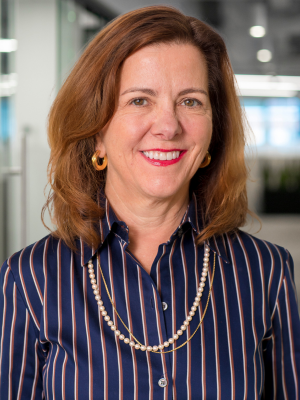
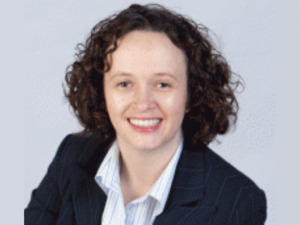
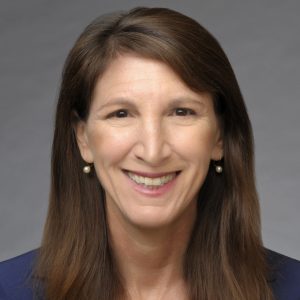 By Laura Keidan Martin, National Chair of Katten Muchin Rosenman’s Women’s Leadership Forum and member of the firm’s Board of Directors and Executive Committee
By Laura Keidan Martin, National Chair of Katten Muchin Rosenman’s Women’s Leadership Forum and member of the firm’s Board of Directors and Executive Committee
